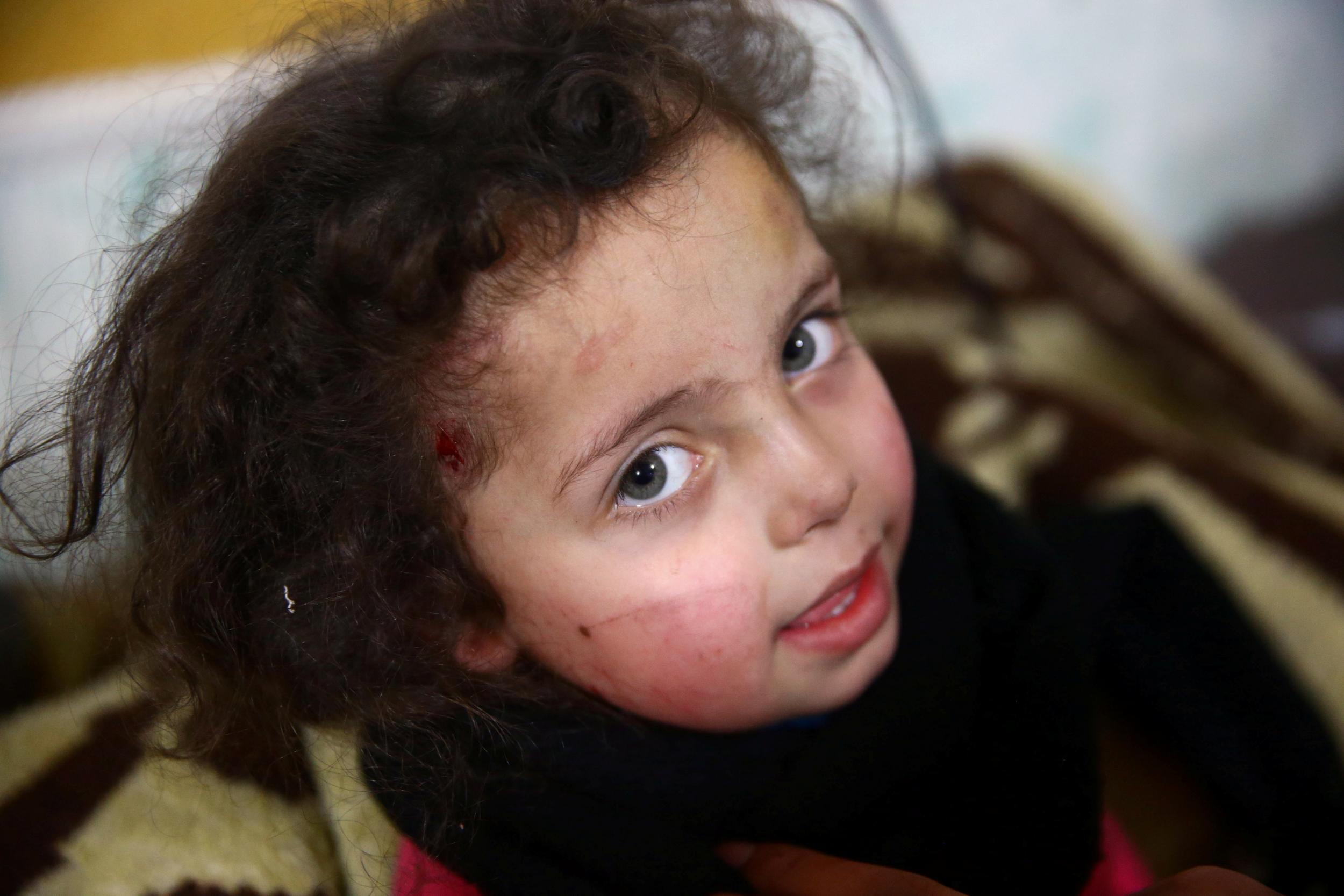Eastern Ghouta: Assad regime continues bombing despite Russia’s truce plan for Syria
Air strikes and shelling in besieged rebel enclave continue despite UN and Russian ceasefire attempts in assault which has killed at least 500 people

Your support helps us to tell the story
From reproductive rights to climate change to Big Tech, The Independent is on the ground when the story is developing. Whether it's investigating the financials of Elon Musk's pro-Trump PAC or producing our latest documentary, 'The A Word', which shines a light on the American women fighting for reproductive rights, we know how important it is to parse out the facts from the messaging.
At such a critical moment in US history, we need reporters on the ground. Your donation allows us to keep sending journalists to speak to both sides of the story.
The Independent is trusted by Americans across the entire political spectrum. And unlike many other quality news outlets, we choose not to lock Americans out of our reporting and analysis with paywalls. We believe quality journalism should be available to everyone, paid for by those who can afford it.
Your support makes all the difference.Russian promises of a five-hour halt in the ferocious Syrian government assault on the besieged rebel enclave of eastern Ghouta appear to have come to nought, with residents and monitors reporting a short lull in fighting before warplanes reappeared.
Tuesday was supposed to see a pause in the 10-day-old assault on the rebel-held suburb of Damascus, from 9am to 2pm, ordered by President Putin – key backer of the Assad regime – the previous day after both sides refused to observe a UN-mandated ceasefire agreed on Saturday.
Both rebel factions and the Syrian army blamed each other for shelling targeting humanitarian corridors out of the besieged area, designed for medical evacuations and aid deliveries.
“We have reports this morning there is continuous fighting in eastern Ghouta,” UN humanitarian spokesperson Jens Laerke said.
“Clearly the situation on the ground is not such that convoys can go in or medical evacuations can go out.”
Hundreds of people have been injured and a staggering medical facilities hit by air strikes as Syrian President Bashar al-Assad steps up the onslaught ahead of what is anticipated to be a final ground assault to crush the rebel enclave once and for all.
The current assault is one of the most bloody episodes in the entire seven-year-old war.
Many families are taking shelter in basements and makeshift tunnels.
Ghouta is one of four supposed de-escalation zones created in a May 2017 agreement brokered by Russia, Turkey and Iran to quell fighting between rebel forces and the regime.
The Damascus suburb has been besieged by government forces for years and was also the scene of a sarin and chlorine gas attack in 2013, one of the worst chemical incidents in modern history.
Rebel infighting is rife, and the Syrian government says it controlled by factions allied to extremists groups such as al Qaeda – who they are targeting in the current assault.
In recent months, however, Mr Assad’s government has tightened the siege, leaving its 400,000 civilians struggling with dwindling food and medical supplies. At the same time, it has stepped up the military campaign.
The tactics echo several other battles in Syria's war, including Homs, Daraya and Aleppo.
Russian ambassador to the UN Vassily Nebenzia said last week that the international community was suffering from “mass psychosis” over the situation in eastern Ghouta.
“Global media outlets acting in coordination, disseminating the same rumours in recent days, in no way does anything to help improve understanding of this situation,” he told the Security Council.
Russian Foreign Minister Sergei Lavrov said on Tuesday that Moscow would press on with the daily pause plan to allow aid in and the injured out.
The UN has repeated a call for all sides to abide by the full 30-day ceasefire demanded by the Security Council.
Join our commenting forum
Join thought-provoking conversations, follow other Independent readers and see their replies
Comments